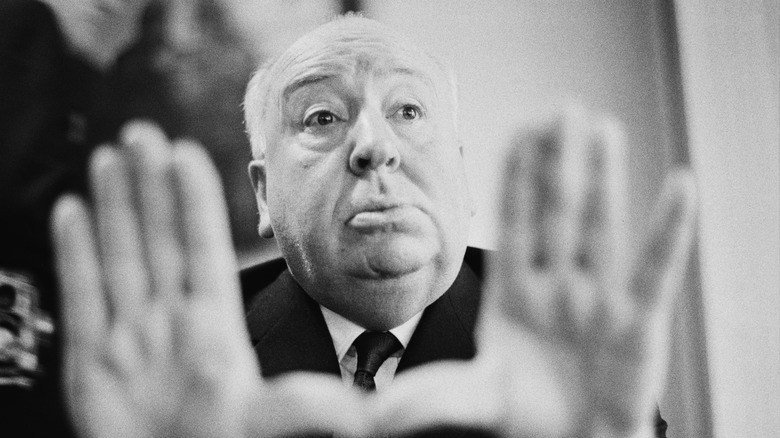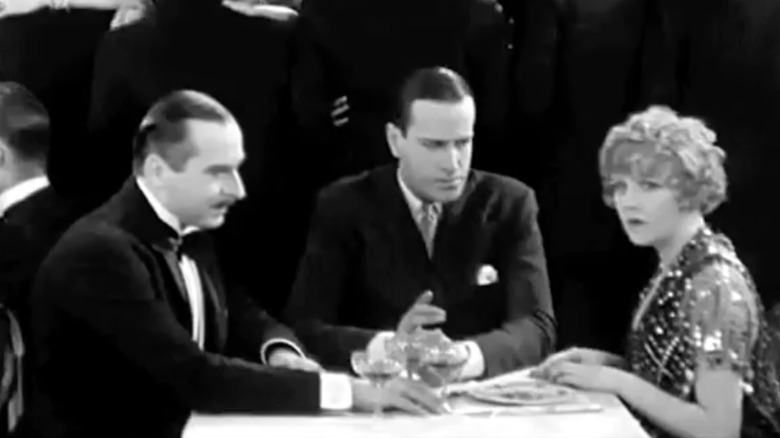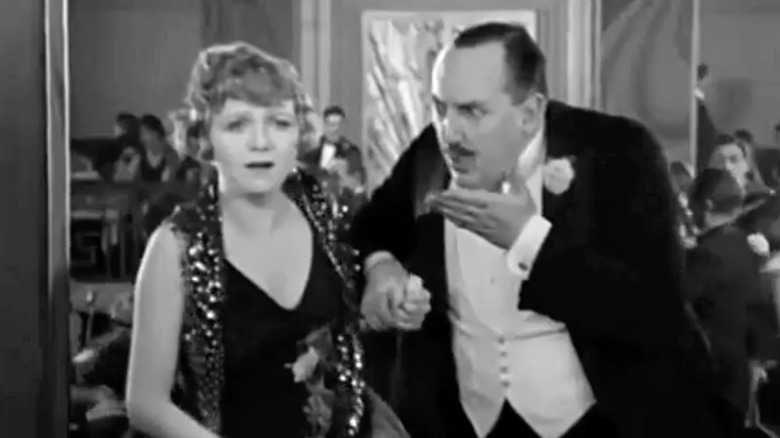Alfred Hitchcock Wasn't Shy About Which Of His Films He Liked The Least
Despite his well-earned title as the master of suspense, many of director Alfred Hitchcock's movies left something to be desired. Though he rarely made all-out duds, his hits were so impressive that they set the bar too high for many of his lesser films. Hitchcock also had a habit of returning to the same elements: an innocent man on the run ("The 39 Steps" and "Saboteur"), a pair of murderers where one of them is horrified by the act ("Rope" and "Strangers on a Train"), etc. While this allowed Hitchcock's later movies to feel more refined for viewers who saw the movies as they came out, it can make for a frustrating experience when you're working your way through Hitchcock's filmography decades later (and likely starting with the classics, making the earlier movies feel like a downgrade).
Hitchcock was no stranger to the fact that some of his movies were stronger than others, even going so far as to publicly complain about what he saw as their shortcomings. In a conversation with fellow director François Truffaut, he even talked about which film was his weakest — and where it all went wrong.
Stop the party
Ironically, while champagne is usually associated with lavish celebrations, it's also the title of Hitchcock's least-favorite work. Released in 1928, just six years into the director's career, "Champagne" follows a wealthy young woman who wants to marry a man that her father thinks is a gold-digger. To test the young man's intentions, her father announces that the family has lost their money. However, when his daughter decides to support herself by working as a server, he gives the charade up and agrees to the wedding.
If you're thinking that "Champagne" sounds more like a romantic drama than a Hitchcockian thriller, you're correct. Early in his career, Hitchcock seemed to work on more romantic films than suspenseful ones. But the director was always a big fan of suspense, so it's hardly a surprise that he would later complain that "Champagne" had "no story." Ultimately though, it's for the best that he got a chance to make the film — especially since it likely improved his later filmmaking.
A learning lesson
It can be really difficult to look back on your own creative works, especially once you've honed your skills. The tiniest subpar detail can feel like a glaring reminder of your own mediocrity, even if it's something that no one else would ever pick up on. If you've become a master of your field, one can only imagine that peering down to your earliest works is all the more painful — and that they're easier to write off as junk.
But despite the fact that Hitchcock held "Champagne" in low esteem, it was a solid learning experience. In his conversation with Truffaut, Hitchcock was able to pinpoint exactly where things went wrong (spoiler alert: the very beginning), an insight which would help improve future films:
"What happened, I think, is that someone said, "Let's do a picture with the title Champagne," and I thought of beginning it in a certain way, which was rather old-fashioned and a little like that very old picture of Griffith's, 'Way Down East.' The story of a young girl going to the big city."
Using a single word as inspiration might be a great way to get the creative juices flowing, but getting too hung up on a single concept could make it harder to make changes later (though to his credit, Hitchcock mentioned dropping a plot idea during the film's production).That being said, the relative failure of "Champagne" was a valuable lesson. As Hitchcock's career progressed, he became more comfortable with making changes to his films — even counting on one to improve the classic "Psycho" shower scene. And while paying his dues may have been frustrating, the skills that Hitchcock inevitably developed on his lesser films' sets would eventually lead to works that left a mark on the movie landscape.


